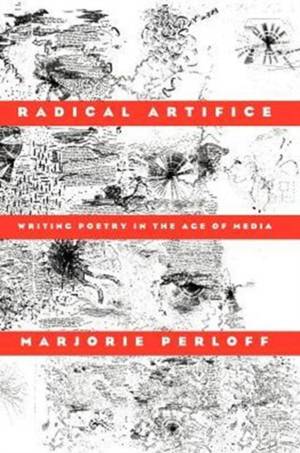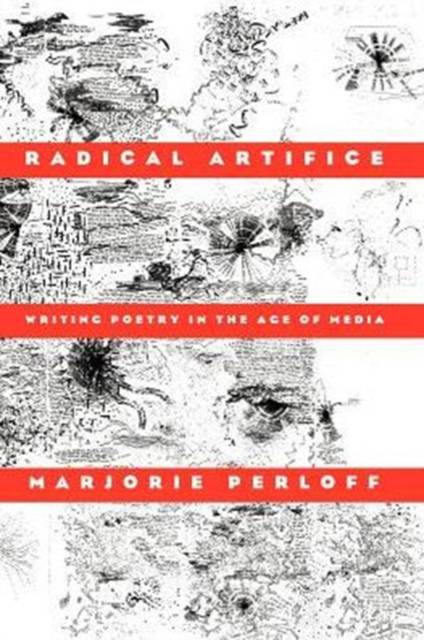
- Afhalen na 1 uur in een winkel met voorraad
- Gratis thuislevering in België vanaf € 30
- Ruim aanbod met 7 miljoen producten
- Afhalen na 1 uur in een winkel met voorraad
- Gratis thuislevering in België vanaf € 30
- Ruim aanbod met 7 miljoen producten
Zoeken
€ 32,45
+ 64 punten
Uitvoering
Omschrijving
How the negotiation between poetic and media discourses takes place is the subject of Marjorie Perloff's groundbreaking study. Radical Artifice considers what happens when the natural speech model inherited from the great Modernist poets comes up against the natural speech of the Donahue talk show, or again, how visual poetics and verse forms are responding to the languages of billboards and sound bytes. Among the many poets whose works are discussed are John Ashbery, George Oppen, Susan Howe, Clark Coolidge, Lyn Hejinian, Leslie Scalapino, Charles Bernstein, Johanna Drucker, and Steve McCaffery. But the strongest presence in Perloff's book is John Cage, a poet better known as a composer, a philosopher, a printmaker, and one who understood, almost half a century ago, that from now on no word, musical note, painted surface, or theoretical statement could ever again escape contamination from the media landscape in which we live. It is under his sign that Radical Artifice was composed.
Specificaties
Betrokkenen
- Auteur(s):
- Uitgeverij:
Inhoud
- Aantal bladzijden:
- 264
- Taal:
- Engels
Eigenschappen
- Productcode (EAN):
- 9780226657349
- Verschijningsdatum:
- 25/06/1994
- Uitvoering:
- Paperback
- Formaat:
- Trade paperback (VS)
- Afmetingen:
- 151 mm x 229 mm
- Gewicht:
- 421 g

Alleen bij Standaard Boekhandel
+ 64 punten op je klantenkaart van Standaard Boekhandel
Beoordelingen
We publiceren alleen reviews die voldoen aan de voorwaarden voor reviews. Bekijk onze voorwaarden voor reviews.







